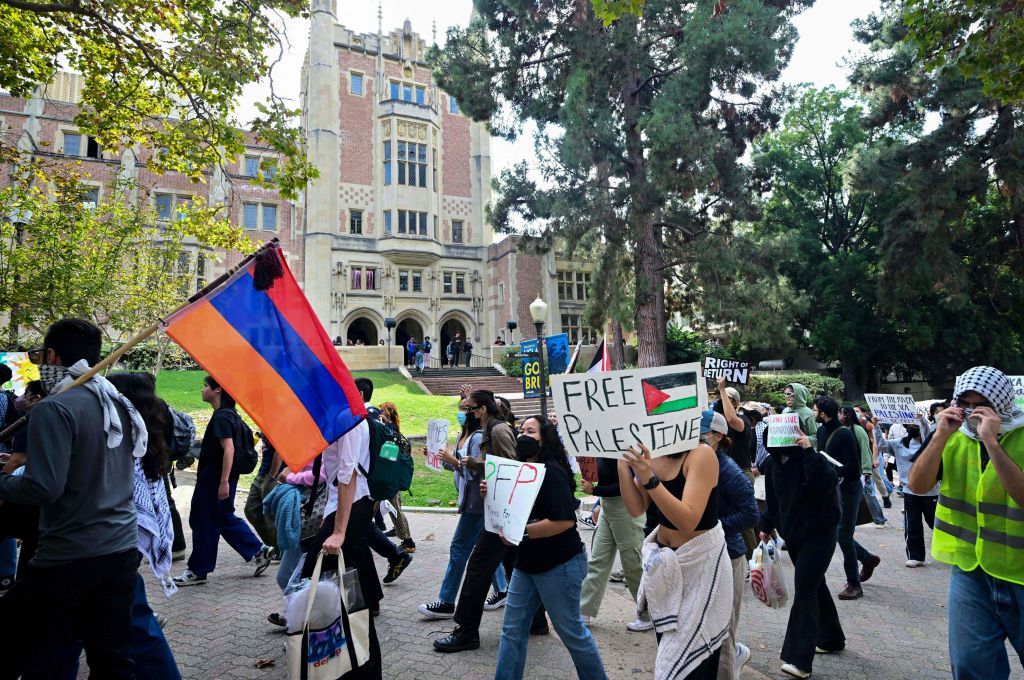
The surprising new call for college presidents to go mute on social issues is echoing through a spectrum of editorial pages. We have long known that abstinence is no way to learn; silence is not golden. The fear of alienating donors, students or faculty must not be confused with compassion or tolerance. The Edelman Trust Barometer is unambiguous in its direction that chief executive voices have become pillars of trust in society—creating standards that can be the subject of further debate. University presidents are CEOs and have always been critical voices in society. Since the 1960s, college presidents such as Notre Dame’s Theodore Hesburgh, Yale’s Kingman Brewster and Berkeley’s Clark Kerr—all of whom have featured on the cover of TIME—have made an impact on the discourse surrounding global issues. Commentators on American institutions as far back as Alexis de Tocqueville have noted that positions taken by leaders in civil society create “social capital” and, in turn, build trust.
Presidents need no encouragement to be cowards in the public sphere. Chicago’s well-known Kalven Report on Institutional Neutrality was aimed at presidents who might have been tempted to speak up on behalf of the struggle for civil rights, or who might have leaned toward protecting young people from participating in the brutal Vietnam War. Even that report stated that exceptions should be for situations that “threaten the very mission of the university and its values of free inquiry.” Don’t racism and anti-Semitism threaten the mission? How about populist authoritarianism?
Chicago’s 1967 report has resurfaced as of late, as discussions rage about what college presidents should—or by some people’s estimations, shouldn’t—say. In stark contrast to our position, Michael R. Bloomberg, in a recent op-ed for The Wall Street Journal, cited the report’s stance that “the university is the home and sponsor of critics; it is not itself the critic.” He argues that rather than urging college presidents to issue stronger statements, “we should demand that they stop making them altogether.”
Yet, the very schools often praised for their neutrality—Northwestern, the University of Chicago and Vanderbilt, for instance—have previously spoken out on important matters including racial justice, disability, immigration, anti-Chinese bias, and gender bias. Is it because the issue is anti-Semitism that silence seems attractive?
But university leaders have an obligation to speak out to ensure safety for students and employees—free of intimidation and harassment. It’s not an infringement on free expression to take a stand as an institutional leader, whether it’s to condemn perpetual military occupation, to denounce scientific falsehoods during a pandemic, to defend the importance of telling the truth about the legacies of Black slavery, or to point out that progressive pieties often make use of ancient anti-Semitic tropes to promote sick silos of solidarity.
It’s one thing to allow ideas to be debated, universities should welcome healthy challenges to core values, but the school leaders should also defend the values that have allowed the right for debate to evolve in the first place.
The fear of accountability should not stop university leaders from speaking their minds, especially since they know that many who belong to the institution will have different points of view. Of course, presidents may discover that they were wrong about an issue, and they will have to modify their stances. This can serve as a good lesson. It shows that presidents, much like students, always have something to learn.
At Wesleyan, in recent weeks an Israeli writer lectured on telling stories in the midst of war and an American historian gave an account of the decades of Palestinian, Israeli misunderstanding. At Yale, academic leaders last week convened an open forum of 500 students from Palestine, Dubai, Kuwait, Israel, China, and Europe, plus 80 faculty and staff, to host the Ambassador of the UAE and Israel. Opening with an interfaith invocation from a revered rabbi and a renowned imam, along with bipartisan expertise from Jared Kushner and Dennis Ross of the prior two Administrations, this event was the first such Arab/Israel exchange of its kind since the invasion seven weeks ago.
Universities with missions dedicated to the “good of the individual and the good of the world,” like Wesleyan, and with mottos saluting light and truth, like Yale, should remind us what Elie Wiesel famously declared: “Silence in the face of evil is complicity.”
More Must-Reads From TIME
- The 100 Most Influential People of 2024
- Coco Gauff Is Playing for Herself Now
- Scenes From Pro-Palestinian Encampments Across U.S. Universities
- 6 Compliments That Land Every Time
- If You're Dating Right Now , You're Brave: Column
- The AI That Could Heal a Divided Internet
- Fallout Is a Brilliant Model for the Future of Video Game Adaptations
- Want Weekly Recs on What to Watch, Read, and More? Sign Up for Worth Your Time
Contact us at letters@time.com